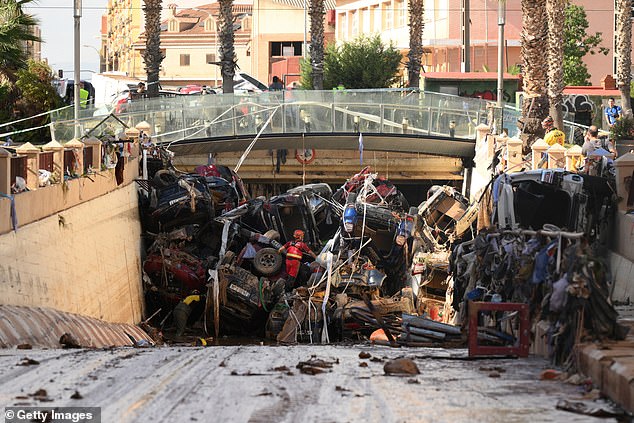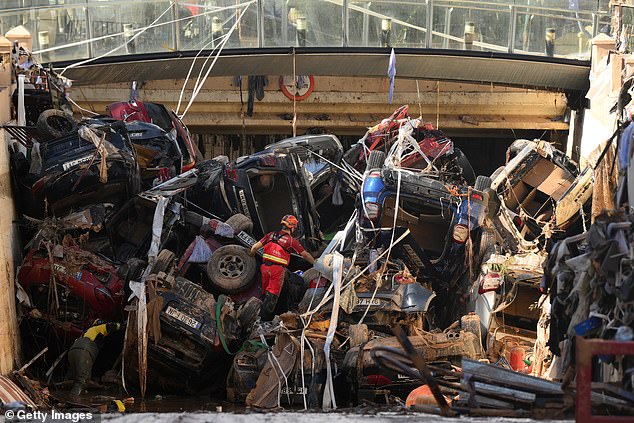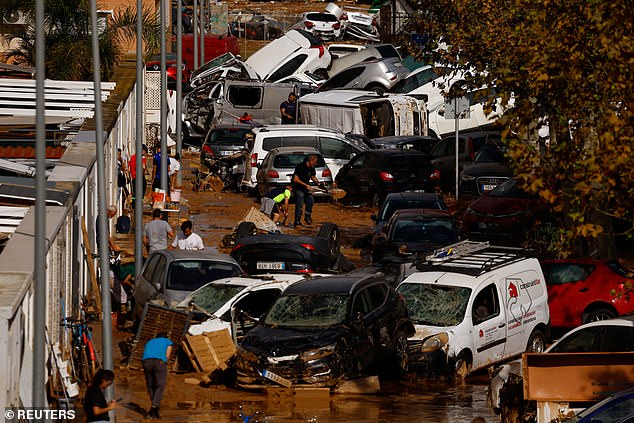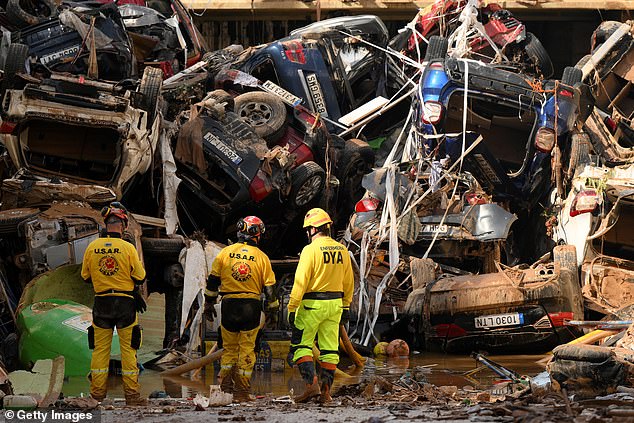The death toll from flooding in Valencia has reached 202, and survivors have been crying out for help because they have no food or water to live on, amid warnings that Spain will be hit by another round of storms.
Residents of the decimated city told local media they are terrified for their lives, as authorities try to count the dead.
‘This is a disaster. There are many elderly people who do not have medicines. There are children who don’t have food. We don’t have milk, we don’t have water. We don’t have access to anything,” a resident of Alfafar, one of the most affected towns in the south of Valencia, told state television TVE.
“No one even came to tell us the first day.”
Juan Ramón Adsuara, mayor of Alfafar, one of the most affected cities, said the aid is not enough for residents trapped in an “extreme situation.”
‘There are people who live with corpses at home. It’s very sad. “We are organizing, but we are running out of everything,” he told reporters.
Members of the firefighters, who are part of a search and rescue unit, carry out work as cars and debris block a tunnel after the recent flash flood in the nearby Benetusser municipality on November 1, 2024 in the Benetusser municipality of Valencia, Spain .

So far, more than 200 people have died from the floods.
“We go with vans to Valencia, we buy and come back, but here we are totally forgotten.”
Residents of communities such as Paiporta, where at least 62 people died, and Catarroja, have been walking kilometers to Valencia to get supplies, passing neighbors from unaffected areas who bring water, basic necessities or shovels to help remove the mud.
Social networks have channeled the needs of those affected.
Some posted images of missing people in hopes of gaining information on their whereabouts, while others launched initiatives such as Suport Mutu, or Mutual Support, which connects requests for help with the people offering it.
Others organized nationwide commodity drives or launched fundraisers.
It comes as Spanish authorities have warned citizens to prepare for more strong storms, which could further increase the already high death toll.
In Tarragona, Catalonia and part of the Balearic Islands, alerts have been issued for heavy rains, such as those experienced in Valencia.

The floods swept away cars and vans and threw them all over the city.

Spain’s Mediterranean coast is used to autumn storms that can cause flooding, but this was the most powerful flash flood in recent times.
Spain’s Mediterranean coast is used to autumn storms that can cause flooding, but this was the most powerful flash flood in recent times.
Scientists relate it to climate change, which is also behind the increase in temperatures and droughts in Spain and the warming of the Mediterranean Sea.
Man-made climate change has doubled the probability of a storm like this week’s deluge in Valencia, according to a partial analysis published Thursday by World Weather Attribution, a group made up of dozens of international scientists who study the role of global warming in extreme weather conditions.
Spain has suffered a drought for almost two years, which made flooding worse because the dry soil was so hard it could not absorb rain.
In August 1996, a flood swept through a camp along the Gállego River in Biescas, in the northeast, killing 87 people.
More to follow.


